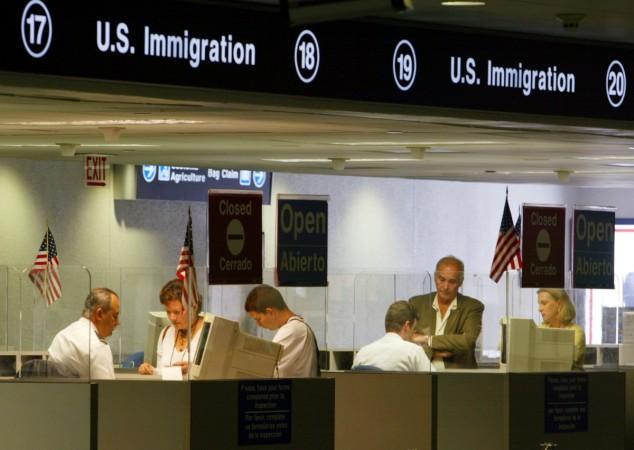
In a major development in the United States, the Trump administration announced on Friday (July 31) that it would increase US immigration fees that will ask the asylum applicants to pay a first-ever fee. It will also witness a rise in the fee of naturalization applications by more than 80 per cent.
The U.S. Citizenship and Immigration Services (USCIS), which is responsible for the country's immigration and naturalization system, said in their announcement that the new fee structure is likely to come into effect by October 2.
According to a report in CNN, the cost of online naturalization applications has now been increased from 640 to 1,160 Dollars along with a 50 Dollars fee for asylum seekers.
According to the Migration Policy Institute, asylum applicants across the world are not subjected to pay applications fees. With this particular announcement, the US has now the fourth country after Australia, Fiji and Iran to impose asylum fee.
The decision came in the aftermath of USCIS services paused due to the novel coronavirus pandemic causing a significant budget shortfall and looming furloughs.
Trump working on 'a big immigration bill'

On the other hand, Trump said that his administration is working on what he called 'a big immigration bill'.
Speaking to reporters on Friday at the White House before a trip to Florida, Trump said the bill will be "merit-based", reports Xinhua news agency.
In addition, he said the administration is working with representatives of the Deferred Action for Childhood Arrivals (DACA), a program that grants undocumented immigrants brought to the country as children permissions to live and work lawfully.
Trump made the remarks only days after his administration announced it is reviewing DACA and that it will reject new applications.
DACA, created via an administrative memo in 2012 by the previous Barack Obama administration, previously gave recipients a renewable two-year deferral from deportation and has made them eligible for work permits, driver's licenses, and health insurance.
Recipients of DACA, estimated to be about 700,000, are commonly called "Dreamers".
Trump, who has made the abolishment of the program a key part of his hardline immigration policy, first announced intentions to rescind DACA in September 2017.
During the coronavirus pandemic, Trump has ramped up moves to restrict immigration.
Critics have argued he's using the pandemic to promote his political agenda and appeal to his voters as the November election nears.
(With IANS Inputs)









!['Had denied Housefull franchise as they wanted me to wear a bikini': Tia Bajpai on turning down bold scripts [Exclusive]](https://data1.ibtimes.co.in/en/full/806605/had-denied-housefull-franchise-they-wanted-me-wear-bikini-tia-bajpai-turning-down-bold.png?w=220&h=138)



